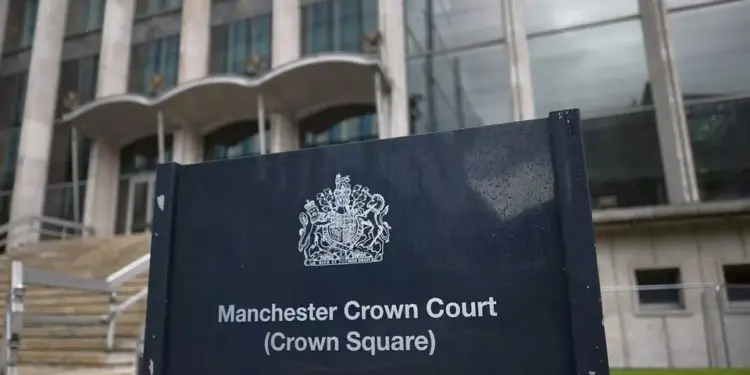A 22-year-old woman, Kiala Wyles, has been handed a two-year sentence suspended for two years at Manchester Crown Court after being convicted of carrying 30 kg of cannabis in vacuum-packed suitcases. Wyles was arrested at Manchester Airport on July 24 after returning from a three-week holiday in Thailand; she had been remanded in custody from the time of her arrest until sentencing. The case has drawn attention both for the scale of the haul and for the judge’s decision to suspend prison time.
The court heard that the drugs were discovered in two vacuum-sealed suitcases and that the defendant originally denied knowing their contents before later saying she had been offered a free trip and a cash bonus by someone who contacted her via social media. Recorder Jeremy Lasker delivered a non-custodial outcome after weighing aggravating and mitigating factors, citing Wyles’s background and the prospect of rehabilitation as reasons for leniency.
Woman given suspended sentence for 30kg cannabis haul
Kiala Wyles was stopped as she arrived back into Manchester on July 24 and officers found roughly 30 kilograms of cannabis packed into two vacuum-sealed suitcases. The quantity and method of concealment made the case serious in the eyes of prosecutors, and Wyles was remanded in custody from the point of arrest until her appearance at Manchester Crown Court this week, where she was convicted and sentenced.
Recorder Jeremy Lasker imposed a two-year prison term but suspended it for two years, meaning Wyles will not serve that sentence immediately unless she breaches the conditions attached to the suspension. The suspended sentence reflects the court’s balancing of the seriousness of the offence with other factors that influenced the sentencing decision.
Judge cites troubled past and hope for rehabilitation
In mitigation, Recorder Lasker pointed to a troubled background: Wyles, now 22, had experienced a stressful childhood, her father had previously been imprisoned, and she had faced severe financial difficulties, including a period when she was thrown out of her home. The judge accepted Wyles’s expressions of remorse and took the view that these personal circumstances reduced her culpability to some extent and increased the prospects that a non-custodial approach could lead to rehabilitation.
The recorder also acknowledged his own uncertainty about the decision, saying he might be making a mistake by not imposing immediate custodial punishment. Despite that admission, he concluded there was a genuine prospect that Wyles could be rehabilitated, a factor that tipped the balance towards a suspended sentence rather than several months in prison after conviction.
Arrest followed Thailand holiday and vacuum-packed suitcases
Prosecutors said Wyles had been on a three-week holiday in Thailand before her return to the UK, and initially maintained she did not know what was inside the suitcases. She later told police she had been contacted by “someone on social media” who offered a free holiday and a promised bonus of £10,000 (about 430,000 baht), suggesting she may have been lured into transporting the goods rather than acting as an organiser or dealer.
The case also highlights the varying legal risks for travellers. Although Thailand’s laws on cannabis have nuances — possession is not automatically treated the same as trafficking, but selling or transporting without the requisite licence is illegal — penalties for drug offences differ dramatically worldwide. Some countries in the region and beyond impose extremely severe punishments, and the UK’s Foreign, Commonwealth and Development Office warns holidaymakers that they can face jail sentences if convicted at home or abroad.
The suspended sentence given to Kiala Wyles reflects a court decision to weigh personal mitigation and rehabilitation prospects against the gravity of transporting a sizeable quantity of a controlled drug. While she avoids immediate custody under the suspension, the case serves as a reminder of the serious legal consequences of involvement in drug transportation and of the complicated personal and social factors that courts may consider when deciding punishment.
Beyond this individual outcome, the matter underscores broader risks for travellers and the wide variation in drug laws and penalties around the world. Whether in the UK or overseas, being caught with or moving controlled substances can carry heavy penalties, and courts will continue to grapple with how best to balance punishment, deterrence and the potential for rehabilitation.




















